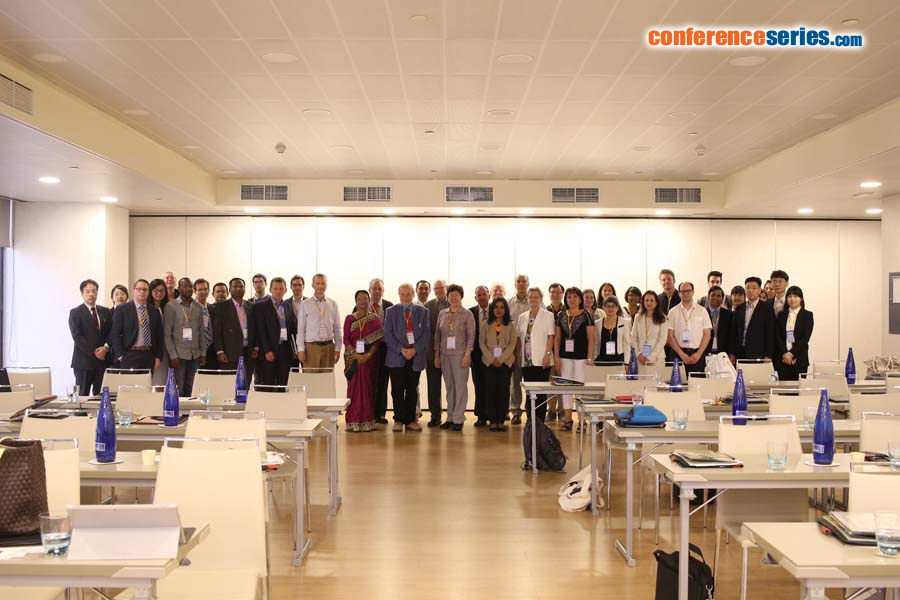
William H. L Stafford
Council for Scientific and Industrial Research (CSIR), South Africa
Title: Green economic development in the City of Johannesburg: production of biogas to fuel city buses
Biography
Biography: William H. L Stafford
Abstract
The City of Johannesburg has explored the opportunity of using biogas to fuel its buses in the drive to be low-carbon, resource efficient and socially inclusive. This study explored the feasibility of using biogas to fuel buses in the city of Johannesburg, South Africa. Biogas is a renewable fuel that can be used for electrical power, heating/cooling, and as a transport fuel. However, the use of biogas for transportation delivers more financial value-adding compared to using biogas for electricity- US$18/GJ for transport fuel and US$9/GJ for electricity. In addition, the use of biogas to fuel city buses has additional local benefits; such as reducing air pollution from vehicle tail-pipe emissions, reducing traffic congestion, and enhancing the social inclusivity of transportation. The cultivation of land and use of energy crops as feedstock for biogas production will require at least seven hectares per bus; which will place additional demands on the city’s scarce land resources and create potential conflicts with food production. Biodegradable wastes are alternative feedstock for biogas production that avoids these impacts and can be supplied at a cost that is currently competitive with the price of other transport fuels, such as diesel and petrol. However, the feasibility depends on the combined economies of scale for biogas production, upgrading and distribution; such that large-scale biogas production (>2000Nm3/h) is required to compete with petrol and diesel market prices. Using size-location modelling, we identified the optimal locations for two large biogas facilities that use the organic fraction of municipal solid waste as feedstock to produce upgraded biogas that can fuel up to six-hundred city buses. The benefits of this project include diverting organic waste from landfill, reducing carbon emissions, improving local air quality, increasing transportation efficiency, delivering new opportunities for transit orientated development and facilitating the transition to a Green economy.

Recent Publications:
- Amigun, B., Musango, J.K., and Stafford, W. (2011). Biofuels and sustainability in Africa. Renewable and Sustainable Energy Reviews, Vol. 15, Issue 2, Pages 1360-1372 doi:10.1016/j.rser.2010.10.015
- Stafford, W. Mapako, M. and Brent, A. (2011) Bioenergy Systems Sustainability Assessment and Management. Renewable Energy Law and Policy Review 3/2011: pp. 205-222
- von Maltitz, G.; Stafford, W (2011) Assessing opportunities and constraints for biofuel development in sub-Saharan Africa. CIFOR. Working Paper 58. Bogor, Indonesia. http://www.cifor.org/publications/pdf_files/WPapers/WP58CIFOR.pdf
- De Lange, W.; Stafford, W.; Forsyth, G.; and Le Maitre, D. (2011). Incorporating stakeholder preferences in the selection of technologies for using invasive alien plants as a bio-energy feedstock: Applying the analytical hierarchy process. Journal of Environmental Management Volume 99, 30 May 2012, Pages 76–83
- Stafford W., Cohen B., Pather-Elias, S., Von Blottnitz H., van Hille R., Harrison S., Burton S. (2013) Technologies for recovery of energy from wastewaters: Applicability and potential in South Africa. Journal of Energy in Southern Africa, 24 (1), pg 15-27.
- The economics of landscape restoration: Benefits of controlling bush encroachment and invasive plant species in South Africa and Namibia (2017). Ecosystem Services. In press http://dx.doi.org/10.1016/j.ecoser.2016.11.021


